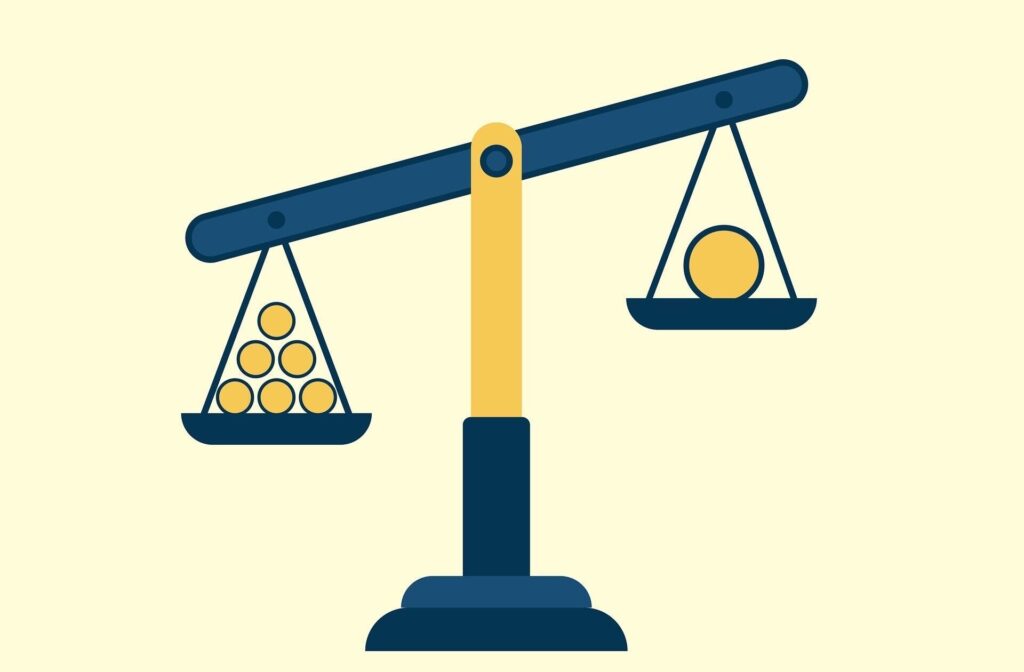Alibaba: The Empire Splits Into Six, Apple Pay Later and More News
Q1 is done, and we’re only a week away from Easter 🐰. After some cheerful eCommerce news from last week, we enter this one with a huge Alibaba shake-up. Apple and Amazon also decided to stay in the headlines and announced some major news. It’s time to check out what’s been going on in the eCommerce world this week!
Today’s news is 1326 words and takes 5 minutes to read.
Alibaba: The Empire Splits Into Six
Alibaba has been in the spotlight this week. From the news of founder Jack Ma being out and about after keeping a low profile for two years, to the company announcing its split into six separate units. It seems the firm is taking a proactive approach to position itself for future success — and the market is definitely buzzing with excitement.
Alibaba’s announcement of the split shook not only the eCommerce world, but the world in general. News channels have been raving about the major changes, and stock market investors seem pretty happy with stock prices flying high.
The controversial business move aims to streamline Alibaba’s operations and make their businesses more focused and efficient. But of course, new questions arise — will other tech giants follow suit? According to speculations, Google might be the next one to split into smaller groups. But whether that will happen or not, for now, remains a mystery.

So what business groups are we talking about?
The six new units will be as follows:
- Cloud Intelligence Group
- Taobao Tmall Business Group
- Local Services Group
- Global Digital Business Group
- Cainiao Smart Logistics
- Digital Media and Entertainment Group
Except for Taobao Tmall Business Group, which will remain fully owned by Alibaba, each of the newly-formed units will have the opportunity to raise external capital and pursue their own initial public offering (IPO). And, of course, each group will have its own autonomous CEO and board of directors.
How will this move impact eCommerce sellers?
There is a possibility that the restructuring of the business could lead to a more competitive marketplace for small online businesses. Each unit made from Alibaba may be more focused on maximizing profits and market share for themselves, rather than supporting the growth of smaller businesses.
Scared that this decision will impact your online business?
At Webretailer, we’re here to help — especially when your online business is at risk. Want to know how to boost your eCommerce business? Don’t miss out on these tips.
On that note, let’s check out the second-biggest story of the week.
Big Retailer News
Apple — Pay Later
Big news in the world of finance and technology: Apple just launched a new service called Apple Pay Later, which allows customers to make purchases and pay overtime. Apple users will have no more excuses about forgetting payments now!
The service offers shoppers a flexible payment option which allows users to split their purchase into four interest-free payments made during the course of six weeks. The developers connected it to Apple Wallet, making ‘pay later’ shopping extremely easy.
It looks like Apple has made shopping more flexible and affordable for millions of users. Cheers to Apple and their commitment to innovation!
We have something for you…
We wouldn’t be Webretailer if we didn’t chip in with something from our side as well. With the fiscal first quarter complete, check out our eCommerce innovations we published earlier this year. It seems like our predictions are turning out to be true!
And with all that fun news, there’s something less fun for Amazon sellers (but for sure more fun for Amazon buyers).
‘Frequently Returned’ Banner on Amazon Product Pages
Amazon has recently unveiled a new banner feature called Frequently Returned, which will show up on items with a high rate of returns. While Amazon hasn’t disclosed the exact return rate required to trigger this feature, it will suggest that such items get returned more frequently than other products available on the website.
This feature will prevent subpar products from achieving high purchase numbers, and provide greater transparency to customers when a product may appear too good to be true.
The ‘Frequently Returned’ banner encourages customers to examine reviews in order to confirm the legitimacy of the product or to better understand the reasons for its high rate of returns. It is not intended to dissuade customers from purchasing the product, but rather to encourage informed buying decisions.
Reducing the number of returns on its platform can help Amazon minimize operational costs, making it in the company’s best interest to promote greater transparency around products with high return rates.
Have you got the best return tools for your business?
Having the best returns management solutions for your business is a crucial part of keeping the business successful. Make sure you check out the software we’ve got just for you!
Also in the News
- Check out this Dad who made over a million pounds on Etsy. Cheshire Live.
- Watch your Etsy business grow with social media. Marmalead.
- AI ethics staff reductions in major companies. Financial Times.
International Retailer News
Is Direct Printing in Store for Etsy and Shopify?
It may not be time to celebrate just yet, but we do have some special news for you this week involving direct printing. A company called 3DQue is working on a new product called Direct2Print, which allows 3D printers to link directly with popular e-commerce platforms like Etsy and Shopify.
That means it’s easier than ever for sellers to sell their 3D-printed products and reach a wider audience. No more struggling to set up your own website or manually processing orders – Direct2Print will take care of everything for you. How cool is that?
But as we mentioned, the product is still in the works. So let’s get excited quietly — but it looks very promising we must say!
Developing your business
Sometimes we need help with product development when running a business. Check out our tips on getting your business from A to B.
EU Passes Laws Affecting Digital Service Providers
The EU is getting serious about regulating tech companies. So what do we know up to this point?
It seems that messing around with data privacy, cybersecurity, or artificial intelligence won’t be so easy from now on. Tech giants like Facebook, Google, and Amazon need to watch their step — e.g. No more selling user data to third-party advertisers or using sneaky algorithms to manipulate user behavior.
The European Union wants to encourage innovation while keeping people safe. They’ve introduced a new framework that classifies tech products based on their level of risk.
So, if your product is high-risk, like a medical device or self-driving car, then you’ll need to go through a more rigorous approval process.
But if it’s a low-risk product, like a messaging app or social network, then you won’t need to jump through as many hoops. This will hopefully make it easier for startups to get off the ground without drowning in regulatory paperwork.
Most of all, the laws are here to encourage collaboration between tech companies, governments, and citizens. It sounds perfect — but is it doable? The transformation is set for 2030, so we still have some time to see what happens ‘till then.
Also in the News
- The Viva Wallet Marketplace Solution. FinExtra.
- European shoppers are more likely to buy health and beauty products online. Internet Retailing.
Webinars
For everyone
Various dates: Amazon advertising’s global webinar program continues with 20+ webinars scheduled, covering Prime Day Preparation, Sponsored Products, Sponsored Brands, reporting, optimization, and other tips. Amazon.
For US sellers
April 4: Five Consumer Trends All CPG Marketers Need to Know. Tinuiti.
For UK sellers
Various dates: Amazon advertising’s global webinar program continues with 20+ webinars scheduled, covering Prime Day Preparation, Sponsored Products, Sponsored Brands, reporting, optimization, and other tips. Amazon.

Leave a Reply